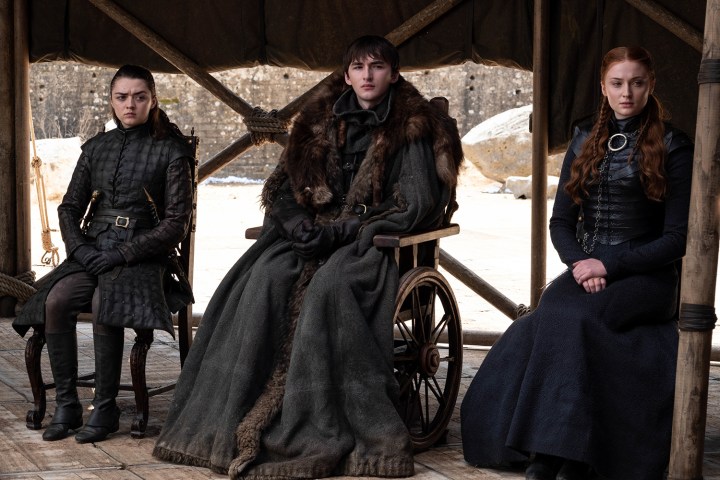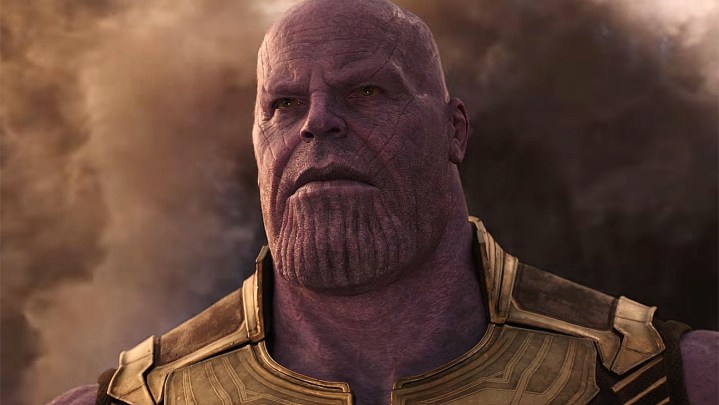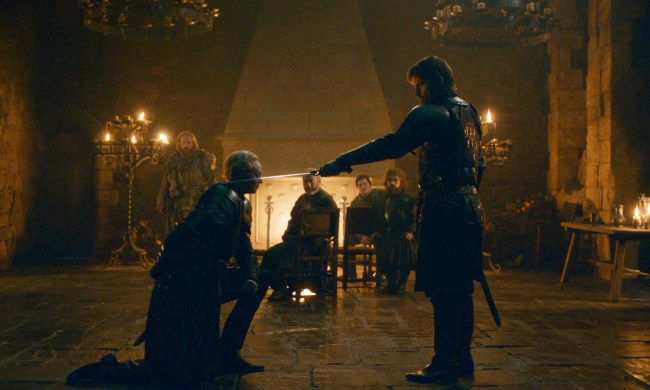
Whether you’re a fan, a media person or, like me, a mix of both, this spring’s bounty of entertainment both on the large and small screen was a truly magical moment. Two of the world’s most fanatically adored entertainment properties, Game of Thrones and Marvel’s four-phase Infinity Stones arc both ended their near decade-long spans of groundbreaking storytelling at almost the same time.
Like a planetary eclipse, these massive bodies, charting wildly different paths, passed by each other ever so briefly in a climax of record-breaking, pulse-raising, popcorn entertainment. And yet, the ends to these two grand adventure tales could not have been more different.
(Editor’s Note: Spoilers for Avengers: Endgame and the final season of Game of Thrones abound below. You’ve been warned.)
Endgame sticks the landing
Just days ahead of the Avengers: Endgame premiere, Dr. Strange director and producer Scott Derrickson shared an anecdote on Twitter about the creation of the final installment of the Russo Brothers’ two-part love letter to their massive Marvel arc.
https://twitter.com/scottderrickson/status/1113319352768417792
“While editing Doctor Strange at Marvel, I ran into Joe Russo outside the men’s room. He pitched me the basic story for both Infinity War and Endgame. I told him that if he could make the first movie work, the second movie would be fucking incredible.”
Endgame was nothing short of a master class in finale writing.
Perhaps an unnecessary bit of foreshadowing for a film that has already become the biggest movie of all time in the U.S., but a telling one from a great storyteller nonetheless. Endgame was nothing short of a master class in finale writing, tying up the vast majority of everything integral to the Infinity Stones arc in a pairing of adventure-packed, heartfelt films that spanned nearly six hours in total, and yet kept Marvel fans like me (and most of the world) on the edge of our seats the entire time.
I freely admit I cried four times during Endgame (if I’m being conservative), thanks to deep dives into the lives of these heroes with whom we’ve grown and shared countless adventures over the last decade. The film is expertly paced, beginning with a jaw-dropping scene showing the consequences of Thanos’ finger snap (a rather silly comic book device that somehow seemed less so on the screen) that ended half the universe.

Did the film have its problems? Sure, time-traveling storylines always do, and each of us could pick out moments that seemed to go over the top. But at the end of it all, I was left not with bones to pick about the loose ends left frayed or frustrations with the way my favorite heroes left the Marvel fold. Instead, I left the theater with the satisfaction that can only come from a beautiful bookend of a story so long in its extension, I don’t even remember who exactly I was when it started. Above all, I felt sweet catharsis and even joy. Now that’s an ending.
The pathos of Game of Thrones
And then there’s Game of Thrones. Apart from the first two episodes — which I quite enjoyed, slow and boiling with tension though they were — the eighth season of this long, drawn-out fantasy story that seemed to rewrite the very rules of the genre in its first few seasons left me frustrated, unsatisfied, and perhaps most of all, confused. I mean, seriously, epic action aside, how does something like this even happen with a franchise this mighty and well financed?
I won’t go into all the many levels and layers that went wrong in GoT’s final season — the coffee cup; the kneejerk pacing that seemed to completely eviscerate the rules of time and space and make Westeros feel both small and isolated; the anticlimactic ends for so many characters, both hero and villain, etc., etc., etc. The litany of problems with the show’s sloppy and even arrogant mad dash to the finish line have already been debated and lampooned ad nauseam online.

What I will say is that, for me, the biggest differences between the ends of these two massive properties when it comes to what went right for Endgame and what went so wrong for Game of Thrones really comes down to the most important part of any story: The characters.
In Endgame, even as they held up this precarious house of cards littered with time travel, massive battles, and callbacks to nearly every integral movie that came before it, the Russo Brothers somehow managed to give each character his or her own space to breathe. Of course, this was a much easier task in the second film — as Game of Thrones and the MCU both know, the easiest way to give more space to multiple characters is to kill off a bunch of them.
Still, each of our beloved heroes in Endgame had their chance to shine: Hawkeye got his revenge arc and, eventually, redemption. Hulk got his bizarre off-screen ascension to nuclear-mutant Zen hero. Thor, once again arguably the most compelling character on screen, got his simultaneously hilarious and dark descent into alcoholism and depression, capped by that wonderful moment of tenderness with his mother. I could go on and on.

Hell, even if you didn’t buy Captain America’s retirement (I like to think he was still putting out the occasional fire in between dances with the intrepid Peggy Carter), few Marvel fans could pretend they didn’t swell up when Cap showed up on that bench after his well-deserved retirement as a Paul Newman-esque old codger.
Save a solid send-off for the main characters at the end of the last episode, Game of Thrones’ final season had none of that. From Jaime’s abrupt turn to save Cersei seemingly just moments after he’d both knighted Brienne and consummated their love, to Varys’ fumbling mutiny, to the Night King’s tragically abrupt death (taking all of the secrets of his ice-zombie inner circle with him), there is no catharsis or even basic understanding to be had with the final acts of these characters we’ve watched these long years.
There’s enough silliness to ridicule in those final episodes for years.
Sure, the show (and the books for that matter) may well have been seeding Dany’s rage over the entire arc when you look back. But that doesn’t give the producers carte blanche to spend the entirety of the final two seasons playing bait and switch with her motivations, never once showing a moment of madness (unless you count cooking Sam’s family) and only vaguely hinting at her anger at Sansa and Jon’s threat to the throne (what do you know, she and Sansa don’t like each other?!).
Even taking away bizarre plot points like Bran’s admission he knew all along the city was going to burn and he was going to be the creepy-eyed, sociopathic tool of justice for Westeros’ new Oligarchical monarchy, there is enough silliness to ponder and ridicule in those final episodes for months, if not years. Luckily, there’s a spinoff coming to keep us tangentially connected to this odd final experiment in subversion for subversion’s sake. (I mean, Bran? Really?!)
The dreaded third act
That said, it’s easy to dissect everything wrong with Game of Thrones’ final season, but it’s also important to remember that storytelling is hard. It’s incredibly easy to critique, and breathtakingly difficult to create. What’s more, while the Russo Brothers had an embarrassing wealth of storylines to choose from, David Benioff and D.B. Weiss (aka D&D) had to chart their own path as George R.R. Martin continuously puts off the end to his grand fantasy tale like a senior term paper.

Maybe the real lesson here isn’t about what D&D and company got wrong. Pick a beloved franchise, and you’re likely to find millions of people who hated its swan song. From Lost to Seinfeld, Sopranos to How I Met Your Mother, entertainment is teeming with examples of poorly received finales. Even if Game of Thrones’ transgressions extend far beyond the final episode to the majority of the final season, as fans, we can all agree that this was a great show for a long time that helped revolutionize the way we see premium TV, while also helping bring fantasy storytelling back into the mainstream.
Instead of denouncing Game of Thrones, perhaps we should be praising just how much the Russo Brothers and Marvel got right. It’s a rare thing to have a franchise arc come to its conclusion with such savory satisfaction, not to mention the fact that taking on such a massive endeavor on a feature level, not just a TV series, has never really been done before.
In the span of just a few weeks, we saw two beloved story arcs come to their inevitable conclusions. One got a poor and unsatisfying end, and the other a beautiful and cathartic one. But rather than marshaling our angst for the former, maybe we should be marveling at (no pun intended) and tipping our cap to the latter.
After all, one out of two ain’t bad. And hey, at least we still have more Barry to look forward to.


